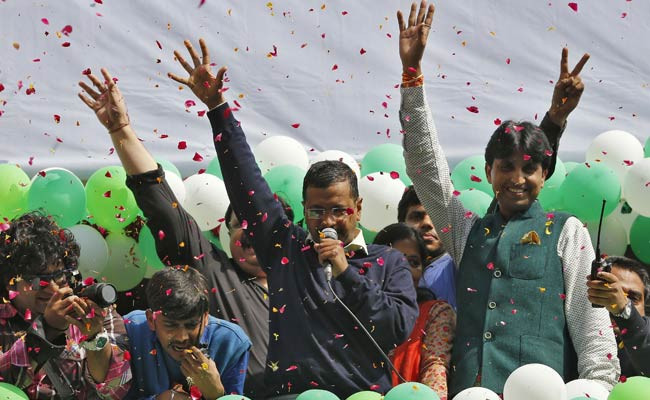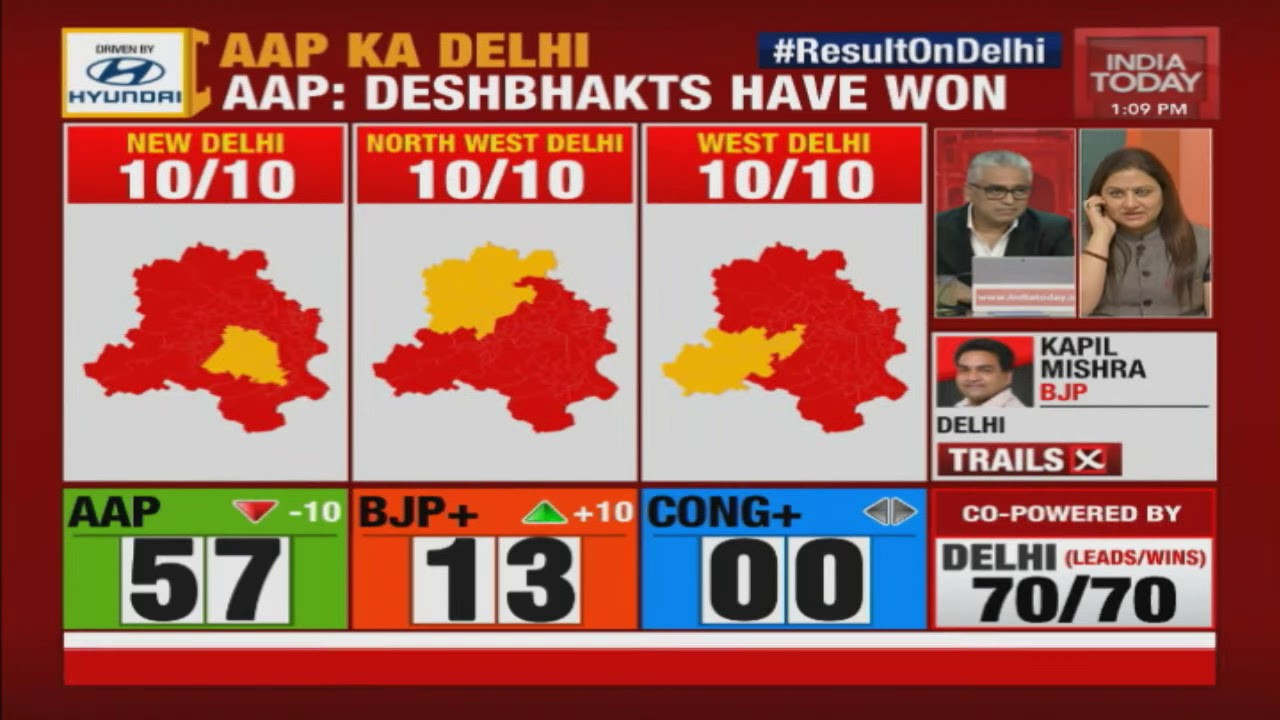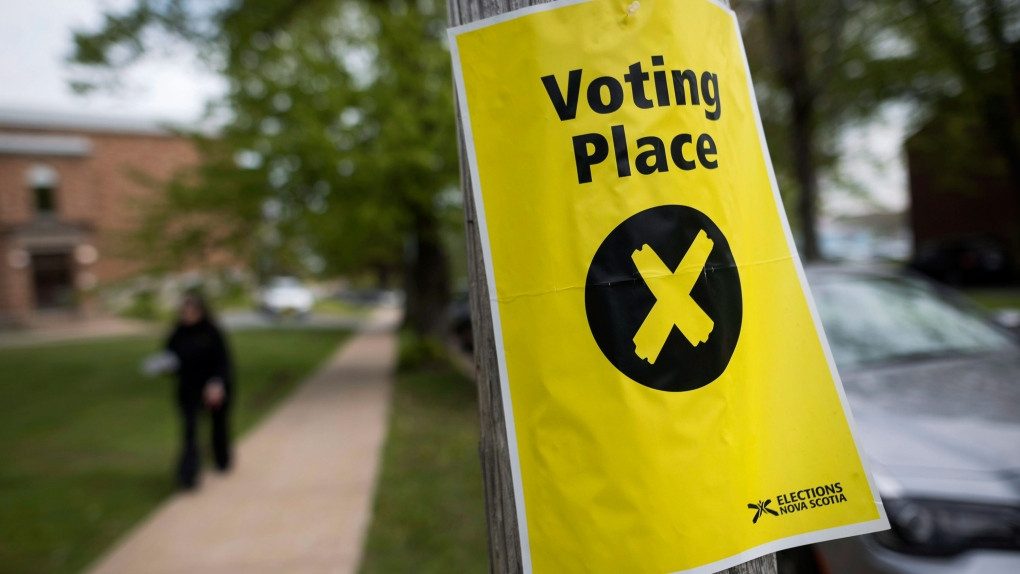Delhi Election Results 2025: A Landslide Victory for BJP
The 2025 Delhi Assembly elections concluded with a stunning victory for the Bharatiya Janata Party (BJP), marking the end of the Aam Aadmi Party's (AAP) decade-long rule in India's capital. The BJP secured a clear majority, winning 48 seats in the 70-member assembly, a significant triumph after 27 years out of power in Delhi. This win is a major boost for Prime Minister Narendra Modi's party, solidifying its position ahead of future elections. The AAP, despite its earlier successes, managed to secure only 22 seats, facing a crushing defeat in what was a battle of prestige for both parties. The election served as a referendum on AAP's governance and welfare policies.
The BJP's Triumphant Campaign
The BJP's campaign was heavily focused on highlighting what they termed AAP's failures in governance, coupled with allegations of corruption. Much of the campaign targeted Arvind Kejriwal, the AAP leader, who, along with his deputy Manish Sisodia, had been jailed over the past two years on corruption charges. These charges, which both leaders deny, undeniably impacted the AAP's image and campaign momentum. Modi's personal involvement, along with Home Minister Amit Shah's participation in campaign events, brought significant resources and name recognition to the BJP’s campaign. The BJP’s ‘double-engine’ pitch—where state and federal governments are ruled by the same party—promised better governance and stability, a message that resonated effectively with voters. This resonated well with voters amid growing concerns about governance and corruption. Their ‘Parivartan’ (change) message struck a chord with voters, but their political and financial strength was equally crucial in sealing the landslide win. The BJP's success in Delhi also follows recent state election victories in Haryana and Maharashtra. This win further consolidates BJP's resurgence after last year’s general election setbacks.
BJP's Key Strategies
- The BJP’s campaign leveraged Modi's popularity and the party's existing infrastructure.
- The party effectively framed the elections as a referendum on governance and anti-corruption.
- The ‘double-engine’ pitch emphasized stability and efficiency.
AAP's Setback and Future Uncertainties
For the AAP, the election results represent a significant setback. The party, which had been lauded for its focus on education and health initiatives during its early years in power, saw many of its top leaders, including Kejriwal and Sisodia, lose their seats. The defeat marks a significant blow to the party and leaves many questions about its future trajectory. Despite its governance of Punjab, losing Delhi will raise questions about the party's strategy and future plans. The AAP’s appeal has diminished, particularly amongst the middle class, who were once strongly drawn to Kejriwal's anti-corruption stance. The arrest and jailing of key leaders, coupled with corruption allegations, significantly damaged the party's campaign.
AAP's Challenges
- The jailing of key leaders and allegations of corruption had a major impact.
- Anti-incumbency and governance fatigue played a significant role.
- The BJP's relentless campaign effectively countered AAP's narratives.
The Significance of Delhi's Unique Power Structure
Delhi’s unique governance structure played a role in shaping the campaign dynamics. Key decisions concerning public order, police, and land are made by the lieutenant governor (LG), appointed by the federal government. This power-sharing arrangement often leads to friction between the federal government and the state legislature, particularly when controlled by opposing parties. However, the election campaign focused on welfare promises rather than political or identity issues, despite this unique framework. Both the AAP and BJP focused on improving public schools, free healthcare services, and cash handouts to women. Interestingly, Delhi's perennial air pollution crisis, which impacts millions, was largely absent from the campaign discourse despite promises made by parties in their manifestos.
A New Dawn for Delhi?
The BJP's victory in the 2025 Delhi Assembly elections signifies a significant political shift in India's capital. After a decade of AAP rule, the BJP's emphatic win signals a new era in governance for Delhi. Prime Minister Modi and the BJP have committed to significant development plans for the city, promising to address issues like infrastructure, pollution, and corruption. Whether they can fulfill these ambitious promises remains to be seen. The coming years will be crucial in determining whether the BJP's vision for a “world’s No. 1 capital” will translate into tangible improvements for Delhi’s residents. The future of Delhi now rests in the hands of the BJP; their actions will determine whether this victory is a testament to their ability to govern effectively or simply a reflection of the electorate's desire for change. The path ahead is paved with both opportunities and challenges, and only time will reveal the true impact of this historic electoral outcome. The outcome of this election significantly shapes the political landscape ahead, sending ripples far beyond Delhi's boundaries. This victory demonstrates the strength of the BJP's political machinery and the resonance of their message with voters. It will surely be closely analyzed by political strategists across the country.


















